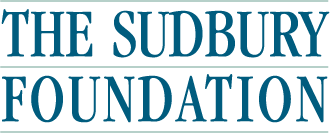Mentoring Matters
Mentoring -- whether formal or informal -- is a powerful tool to keep young people on the right track, particularly kids who are disconnected from their community.
Highlights and insights from the 2015 report The Mentoring Effect: Young People’s Perspectives on the Outcomes and Availability of Mentoring, are worth repeating.
Youth with mentors are more likely to report positive behaviors and less likely to report negative ones.
- At-risk young adults who had a mentor are more likely to aspire to enroll in and graduate from college than those who did not have a mentor (76 percent versus 56 percent).
- At-risk young adults who had a mentor are more likely to be enrolled in college than those who did not have a mentor (45 percent versus 29 percent).
- At-risk young adults who had a mentor are more likely to report participating regularly in sports or extracurricular activities than those who did not have a mentor (67 percent versus 37 percent).
- At-risk young adults who had a mentor are more likely to hold a leadership position in a club, sports team, school council, or another group than those who did not have a mentor (51 percent versus 22).
- At-risk young adults who had a mentor are more likely to volunteer regularly in their communities than those who did not have a mentor (48 percent versus 27).
Young people believe mentoring provides them with support and guidance to lead productive lives.
- Youth report that formal mentoring programs provide a variety of benefits, and most commonly offer that they receive advice about school, get help with school issues and/or schoolwork. They also make reference to receiving help to address life problems, assistance in getting a job, choosing a career and getting into college – though these benefits were less commonly reported.
- Youth in informal mentoring relationships commonly offer that their mentors provided developmental, more than academic, support. These mentors conveyed advice and encouragement to help them make good decisions, taught young adults how to make the right decisions and follow the right path and become motivated.
- Nearly nine in ten respondents who were mentored report they are interested in becoming mentors. In addition to confirming the value of mentoring, this desire to become a mentor also strengthens the earlier finding that mentoring is linked with higher rates of leadership and volunteering and offers a pool of future mentors to be activated.
The field of mentoring has grown significantly but a mentoring gap exists.
- One in three young people overall (34 percent) and even more at-risk youth (37 percent) report they never had an adult mentor of any kind (naturally occurring or structured) while they were growing up.
- Nationwide, that means today approximately 16 million youth, including 9 million at-risk youth, will reach age 19 without ever having a mentor.
- Youth who struggled with attendance, behavior, and course performance are 10 percentage points less likely to have an informal mentor than those without these risks (57 percent versus 67 percent). Four in five (79 percent) youth with these off-track indicators do not have a structured mentor.
- On a positive note, an estimated 4.5 million at-risk young people will have a structured mentoring relationship while growing up.
Locally, there are lots of mentoring opportunities - both formal and informal - that support at-risk youth. But are there enough? Probably not. Is your agency doing it all can to foster meaningful relationships between youth and caring adults? January is National Mentoring Month, a good time assess programs and services through a mentoring lens.
Mentoring Resources:
Mass Mentoring Partnership
http://www.massmentors.org/
Mentoring: National Mentoring Partnership
http://www.mentoring.org/


